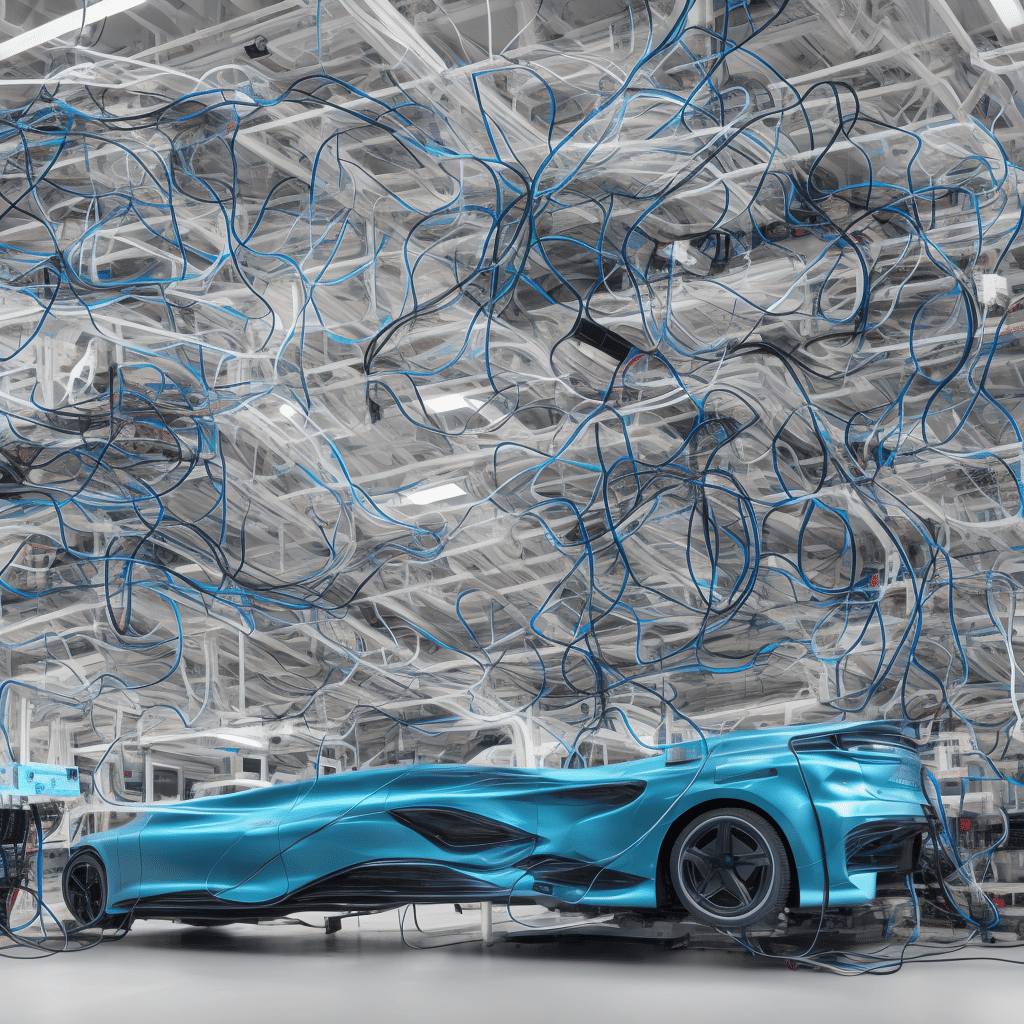What New Technologies Are Emerging in Electric Vehicle Batteries?

As battery technology continues to evolve, it’s playing a pivotal role in shaping our future. The most visible of these changes is seen in the automobile industry, where electric vehicles (EVs) are rapidly gaining popularity. But electric vehicles are only as good as the batteries that power them. The race is on to develop batteries that are lightweight, energy-dense, cost-effective, and environmentally friendly.
In this article, we will examine emerging technologies in the realm of electric vehicle batteries that are shaking up the industry. We will delve into the future of lithium-ion batteries, the promise of solid-state batteries, the challenges of charging infrastructure, and the potential for batteries that offer extended range.
En parallèle : How Is AI Being Used to Create More Advanced Virtual Assistants?
The Evolving Future of Lithium-Ion Batteries
The lithium-ion battery has been the stalwart of the electric vehicle industry for some time now. However, researchers are continually identifying ways to improve these batteries, enhancing their energy density – which translates to longer range – while also reducing their cost.
One of the promising advancements in lithium-ion technology is the lithium-sulfur battery. This kind of battery could potentially offer twice the energy density of traditional lithium-ion batteries, which would effectively double the range of electric vehicles. This technology is still in the experimental stage, but it does offer an exciting glimpse into the potential future of lithium-ion batteries.
Sujet a lire : What Is the Future of Biometric Technology in Personal Identification?
Scientists are also researching the use of silicon in the anodes of lithium-ion batteries, as silicon can hold about ten times more lithium ions than graphite, the material currently used. This could significantly increase the battery’s capacity and extend the vehicle’s range. However, there are challenges to overcome, as silicon expands and contracts dramatically during charging, which can lead to faster degradation.
The Promise of Solid-State Batteries
Many industry experts believe that the future of electric vehicle batteries lies with solid-state technology. Unlike conventional batteries that use a liquid electrolyte, solid-state batteries use a solid one. This change allows for higher energy density and makes them safer, as there is less risk of leakage or fire.
Companies like Toyota, BMW, and Ford are investing heavily in solid-state battery technology. Toyota, for example, plans to showcase its solid-state battery in a concept car at the 2025 Olympics. It claims that this battery will offer a range of over 500 miles and can be recharged in just 10 minutes.
However, solid-state batteries are not without their challenges. They are currently expensive to produce, and finding a solid electrolyte that allows for rapid ion movement is difficult.
The Challenges of Charging Infrastructure
As electric vehicle usage grows, so too does the need for a robust charging infrastructure. This is one of the key challenges facing the industry, but it is also an area where technology can make a significant impact.
Wireless charging technologies, for example, are becoming increasingly popular. They offer the convenience of charging without the need for cables and connectors, with some even allowing for charging while the vehicle is in motion.
One of the key issues with charging, however, is the time it takes. This is an area where so-called ‘superchargers’ can help. These high-capacity chargers can recharge a vehicle considerably faster than traditional ones. The challenge here is developing a network of these chargers, which is something companies like Tesla are working on.
The Potential for Extended-Range Batteries
A common concern among potential electric vehicle buyers is range anxiety – the fear that their vehicle will run out of power before they can reach a charging station. Advances in battery technology are helping to alleviate these concerns.
As previously mentioned, improving the energy density of batteries can significantly extend their range. But researchers are also exploring other technologies, such as metal-air batteries. These batteries use oxygen from the air to produce electricity, potentially providing a much greater range than current technologies. However, metal-air batteries are still in the early stages of development, and there are many technical challenges to overcome.
Advances in battery technology are vital for the future of electric vehicles. It’s an exciting field, with breakthroughs occurring at a rapid pace. While challenges remain, the potential benefits of these advances – for consumers, the environment, and the industry – make it a fascinating area to keep an eye on.
The Emergence of Lithium-Sulfur Batteries
As we delve deeper into the realm of battery technology, we encounter the grasp of lithium-sulfur batteries. This novel technology is believed to hold a promising future for the enhancement of electric vehicles. Lithium-sulfur batteries are being studied extensively due to their potential to offer twice the energy density of traditional lithium-ion batteries. This leap in energy density could effectively double the range of electric vehicles.
This increase in range is not the only advantage lithium-sulfur batteries may offer. They are also believed to be more environmentally friendly due to the abundance of sulfur, which is a by-product of the petroleum industry, making it a considerably more sustainable option than other materials currently in use. However, it’s essential to remember that this technology is still in the experimental stage.
The primary hurdle to overcome with lithium-sulfur batteries is their limited lifespan. The process within these batteries causes degradation over time, which significantly reduces the battery’s effectiveness after a few hundred charging cycles. To facilitate the transition from lithium-ion to lithium-sulfur, researchers are exploring various strategies to improve the cycle life of these batteries, such as using advanced materials for the sulfur cathode or optimizing the electrolyte composition.
The Decisive Role of Superchargers in Reducing Charging Times
Undeniably, one of the primary concerns regarding electric vehicles has been their charging times. The development of a ‘supercharger’ network stands out as a promising solution to this issue. A ‘supercharger’ is a high-capacity charger capable of recharging an electric vehicle considerably faster than traditional chargers.
The main advantage of these chargers is the convenience they offer to electric vehicle owners. With superchargers, refueling a vehicle can become as quick and straightforward as filling up a gasoline car. This would dramatically increase the practicality of owning an electric car, particularly for those who frequently make long-distance trips.
Implementing this network is not without its challenges, however. The cost of installing superchargers is high, not to mention the additional energy demand it would generate. Moreover, the use of superchargers can lead to faster degradation of batteries, particularly if they are used exclusively for charging. For these reasons, the development of superchargers is being coupled with improvements in battery technologies, aiming to create batteries that can withstand faster charging without significantly reduced lifespan.
Conclusion: The Future of Battery Technologies in Electric Vehicles
To conclude, it’s clear that the advancements in battery technologies are propelling the development of electric vehicles in exciting new directions. Optimizing lithium-ion batteries for better performance and lifespan, exploring the potential of lithium-sulfur batteries, investing in solid-state battery technology, enhancing the charging infrastructure, and extending the range of electric vehicles are all significant steps towards a sustainable future.
While these innovations come with their share of challenges, the continued efforts of researchers and manufacturers worldwide are gradually overcoming these hurdles. As we look towards the future of electric vehicles, it’s evident that battery technology will continue to play a central role in shaping the industry. The focus will remain on developing cost-effective, energy-efficient, and environmentally friendly solutions that can seamlessly integrate into our daily lives.
